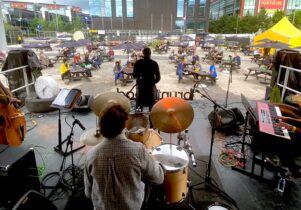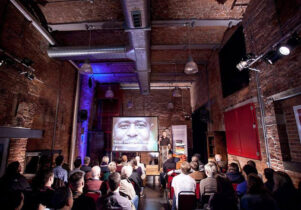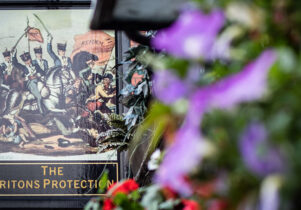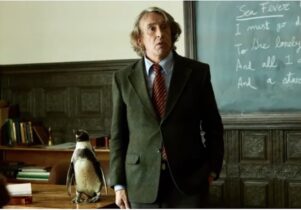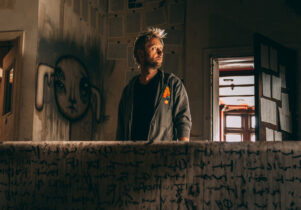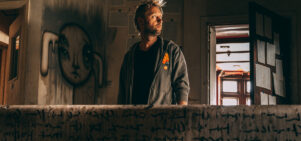Dark River at HOME
Nirmala Patel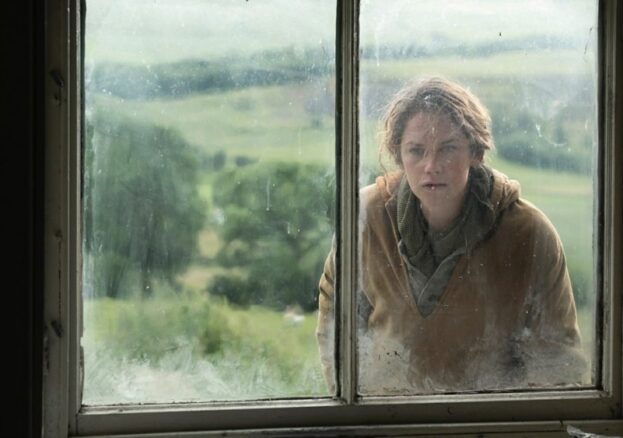
Dark River is the third feature from British writer/director Clio Barnard (The Arbor, The Selfish Giant). Barnard cites “sense of place” as the prevailing theme in her work, which in this case is the reticent Yorkshire countryside, rendered as a nurturing but strained backdrop with a passive but affecting role in the incidents it fosters. Notably, the third in a set of recent independent British films set in rural Britain (The Levelling, God’s Own Country), Dark River is a distinct exploration of its own tragedy and redemption. Despite their common, unyielding pastoral setting that presses upon existing personal struggles, each film is steeped in a specific social realism, while addressing universal issues that travel beyond the countryside.
On its surface, Dark River is a story of succession rights and sibling rivalry. At its core, this is a deeply layered meditation on traumatic memory and the silence that betrays a sibling bond. Our first glimpse of central character Alice (Ruth Wilson) is as a passionate, roving sheep shearer. In a matter-of-fact delivery, Alice informs a close colleague of her intentions to return to her childhood home, in order to claim the tenancy of her recently deceased father’s farmland. Fifteen years since her departure, any joy Alice might find in returning to the homefarm is marred by her immediate and inevitable flashbacks to her abusive past, at the hands of her father (Sean Bean). These desperate memories are embedded in the house, amongst fairer ones, and are triggered by sensory familiarity as she reoccupies the now deteriorated house.
Her older brother, Joe (Mark Stanley), remains on the farm in a similar condition; we learn that the farm suffers underneath his own deterioration, which involves alcohol dependency. Locally, Joe is regarded as a hopeless cause and he seems bitter towards Alice’s arrival. However, this harsh characterisation is shown in contrast to his affectionate relationship with the farmland and in turn, a deep care for his sister. We soon grasp the fondness which both siblings have for the familial land, alongside their confusion of how to manage themselves around it and towards one another.
With skilful subtlety, the way in which the countryside is featured reflects their confused yearning. In their conversations, Alice and Joe both make broken attempts to reconnect, although the unspoken, unresolved issue of Alice’s abuse deters reconciliation. In this way, Alice barely settles and abrupt dramatic sequences pierce her stoic attempts to reclaim a relationship with home. Fleeting moments between Alice, Joe and the farm, as they decide the best actions to take with the land and livestock, highlight the sincerity of the pair’s dedication towards it – signifying a crucial potential for hope. The countryside is framed diversely, in it’s coarser and idyllic forms, and shot in a melancholic style so that its beauty holds the emotion of the story. The voice of PJ Harvey sets this tone at the very beginning with the haunting song, “An Acre of Land”.
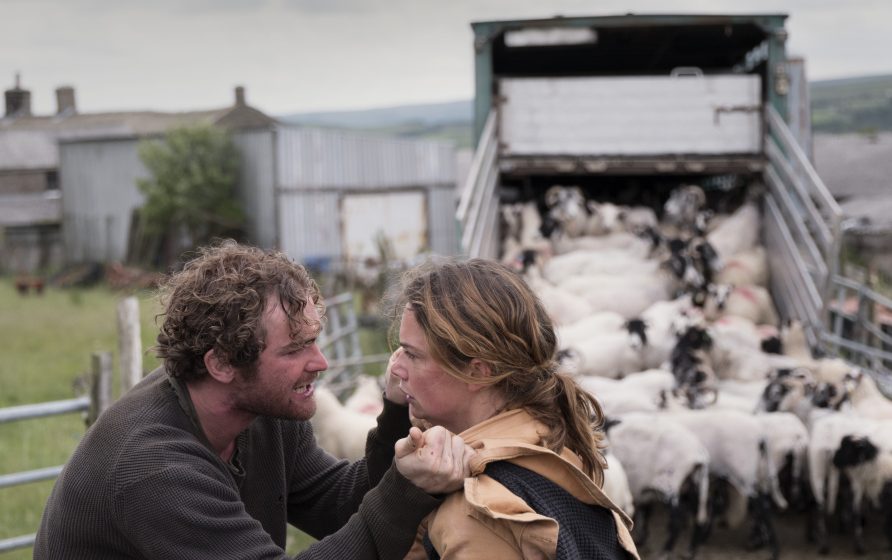
Wilson brings both strength and fragility to the internal and external battles that Alice endures. Out of necessity, Alice has a quiet determination about her; this is tested and provoked as she returns home, where the harshness of her early years are brought to the fore. Abuse is never an explicit plot point, but rather made evident in the way characters carry its burden into adulthood. Just as Wilson impresses as Alice, so does Stanley’s take on Joe’s struggle with internalised guilt in a heartbreakingly pained performance.
This woman-led production imparts a timely message on the detrimental impact of the patriarchy; Wilson relates the parallels between “the objectification of the land and the objectification of Alice’s body”. There are several instances of brutality from men in the local community that will surely be familiar to the female audience. Dark River is a necessary pause for thought on how we manage society’s tendency towards silence. The film’s portrayal of the unacknowledged struggle of many, demands that we see silence as a threat to our wellbeing and to the sense of community from which we all deserve to thrive. The big screen is a vital means of accessing these discussions in a representative way.











